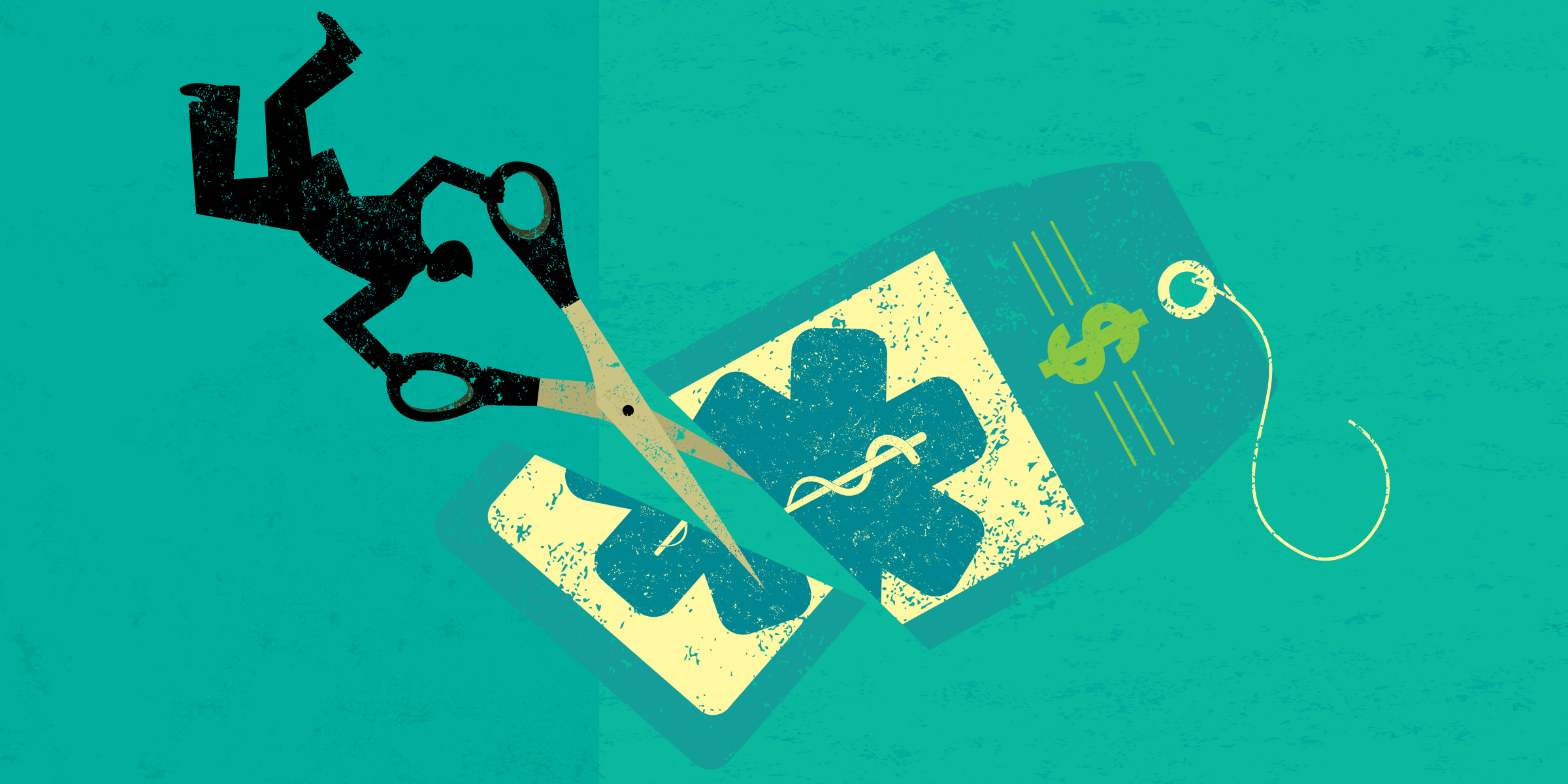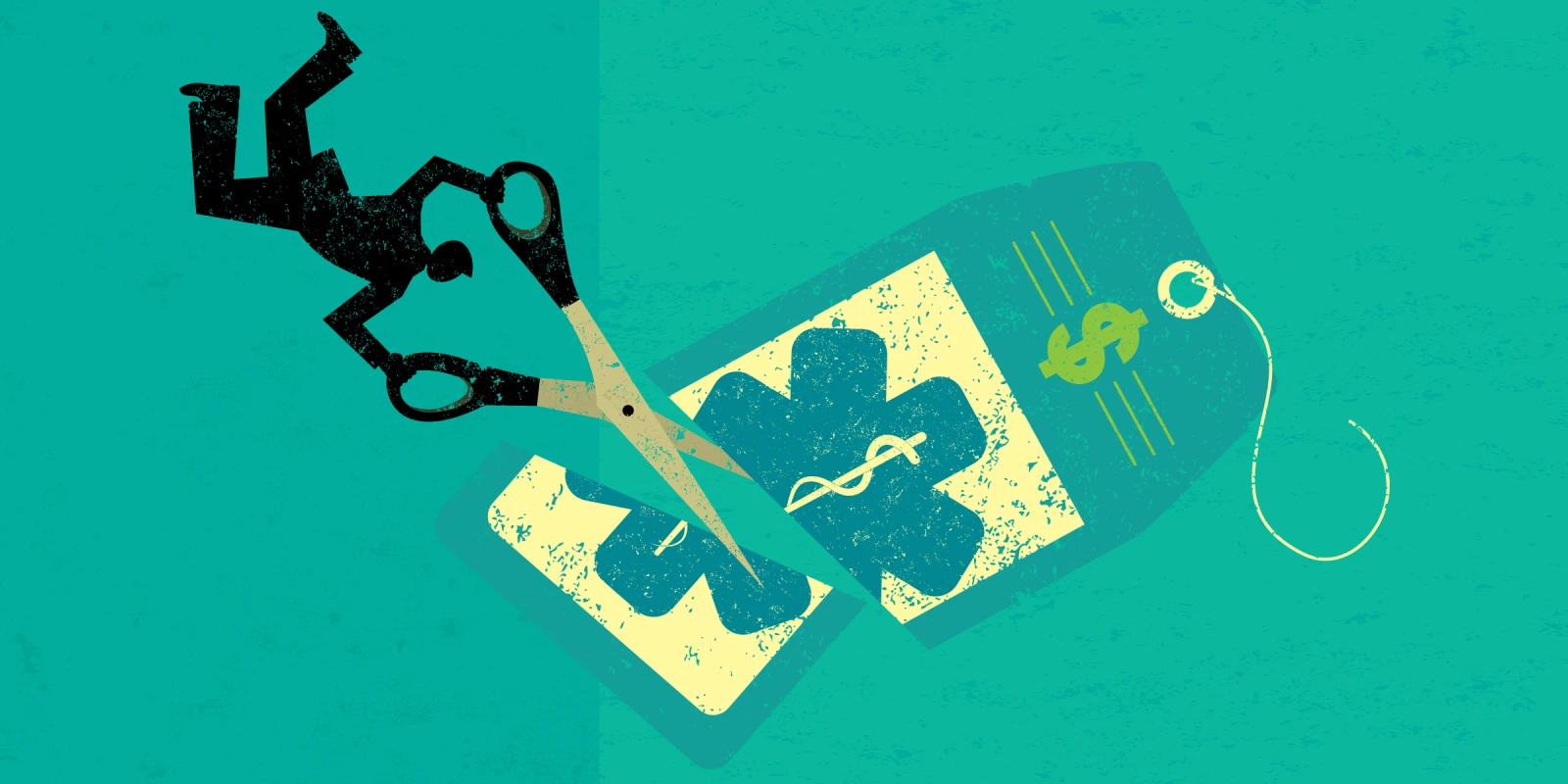
Pharmacy discount cards have become as pervasive to the health care model as direct-to-consumer advertising. People use them every day to save themselves money, often without batting an eye, but are they good for patients?
How Do Pharmacy Discount Cards Work?
Marketing firms work with pharmacy benefit managers (PBMs) who negotiate prices with pharmacies to keep costs low. Then, they get the consumer access to the card — via direct-to-consumer advertising, mailers, card placement in medical offices, smartphone apps, etc. We’ve all heard the adage “There’s no such thing as a free meal,” so how can a free card carry significant savings to patients?
PBMs are essentially a buying group for many smaller insurance companies. By pooling a bunch of insurance companies together, they negotiate pricing for prescriptions at pharmacies. Marketing firms do three things: advertise, increase the size of their pool, and collect your personal information. They are recruiting patients with poor or no insurance to give them personal information with each prescription filled. One is often allowing them to collect and sell your information, resulting in more spam calls and higher risk of identity theft. Information is as good as money in this direct-to-consumer world; personal information is worth more than actual money because they can sell it over and over.
If a Patient Saves Money, Who Loses Money?
As the pool gets bigger, they get better negotiating power, resulting in one-sided offers where a pharmacy must choose between taking the offer or losing a large percentage of their patients.
Because discount cards use the same PBM as large insurance contracts, pharmacies can be in breach of contract for a larger insurance pool if they refuse a discount card ran by the same PBM, even if it’s less than the cost of the medication. They piggyback on the power of the PBM to get what they want like a parasite.
In any other retail business, transactions are finalized at the register. In pharmacy, however, that “agreed upon” price is only agreed upon by the discount card companies, often after the transaction at the register.
Introduce, the clawback: an occasion where the PBMs recuperate money afterwards electronically. Sometimes, discount card companies charge more than the actual medication cost. Months after the purchase, PBMs will clawback an amount, which may leave the pharmacy with a slim profit or even a loss.
“Free” discount cards come with a price you don’t directly pay or even see. Most retail businesses have 50% markup – gross profit margin. In pharmacy, a hard day’s work could result in single-digit markup on goods. It’s the only retail landscape expected to survive on such small profit. When a product is discounted below cost, the lights don’t stay on.
Using pharmacy discount cards has indirect costs: less staffing and longer wait times. Doing more with less has become the mainstay of pharmacies, but the true cost is patient safety. While patients wait in long lines, look at the pharmacy — the pressure is palpable. We strive for 100% accuracy and safety, but we are all human and make errors under pressure. As the patient need for prescriptions increases and number of pharmacies decrease, the risk of more errors increases.
More than 100 independent pharmacies nationwide have closed and chain pharmacies are closing or reducing workforce on every corner, while PBMs like Express Scripts report net earnings of more than a billion dollars.
We need more people in this new health care system to keep organized and highly functioning — don’t prevent that by distributing discount cards for which you do not know the impact.
How can discount cards benefit patients, discount card companies, and pharmacies at the same time? It can’t. Our desire to find more affordable health care has us paying much greater costs: quality of our health care and lack of privacy. Let the pharmacy manage the costs in a way that doesn’t shut down the local pharmacy. How would you feel if I gave our mutual patients a coupon for a free office visit?
Pharmacists are advocates for affordable medications and work to find alternatives for many patients given their medical circumstances and insurance limitations. Our livelihood depends on removing barriers to access to medication necessary to treat or control medical conditions. It’s in our best interest to help find solutions that will provide similar benefit but not at the expense of your pharmacy.
It's Not All About the Money
I know it’s unpopular to say “don’t use discount cards.” I had someone tell me “if you told my dad not to use a discount card, he’d go to another pharmacy.” Although I would never want to deter someone from coming to my pharmacy, the irony is a patient with a discount card could actually do more harm than good in keeping my pharmacy open. How can increased business result in decreased profits?
Additionally, I understand there are some people who couldn’t afford their medication without these cards, due to high-deductible insurance plans or no insurance options, and we are very sympathetic of that. Pharmacies and pharmacy staffs are dedicated to patient health, and sometimes using discount cards is what’s best for patient health. After all, if one can’t afford medications, it’s the worst case for the pharmacist-patient relationship. Everything in medicine is measured in terms of risk vs. benefit, and in the case of unaffordable medications, no one benefits. However, for years now pharmacists have served behind the scenes as patient care advocates providing patient-specific recommendation for the best therapeutic and financial benefit. Contrary to public perception, we loathe having to be the bearer of bad news to a patient about cost.
Discount cards: what seems like a great solution to soaring medication prices are actually contributing to the problem. What we need is health care reform, not a workaround.
A graduate of the University of Charleston School of Pharmacy in 2010, Matt is the 2019 Distinguished Young Pharmacist Award Recipient for the West Virginia Pharmacists Association. He has been the Employed Pharmacy Director for WVPA since 2015 and has been the Pharmacy Manager at Kroger Pharmacy in Warwood, WV since 2012. Matt can be reached at WVPharmacists@gmail.com.







